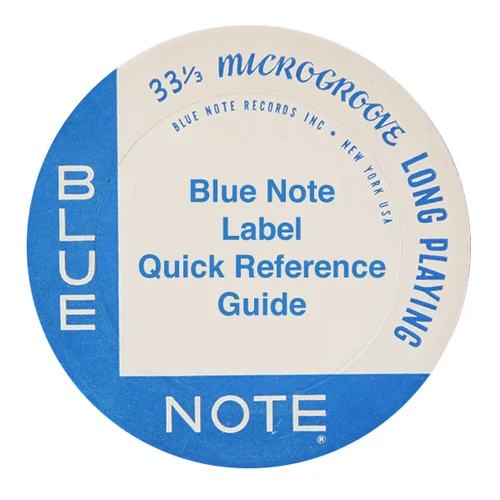Space Bop: Elvin Jones - "Genesis"
/Elvin Jones • Genesis • 1971 • Blue Note Records
Recorded February 12, 1971 at Rudy Van Gelder Studio
The Selection:
The Tracks:
A1. P.P. Phoenix
A2. For All The Other Times
A3. Slumber
B1. Three Card Molly
B2. Cecilia Is Love
The Players:
Elvin Jones - Drums
Joe Farrell - Tenor & Soprano Sax
Dave Liebman - Tenor & Soprano Sax
Frank Foster - Tenor Sax, Alto Flute, Alto Clarinet
Gene Perla - Bass, Electric Bass
The Record:
Elvin Contemplating His Next Move - Photo By Lee Tanner
Elvin Jones' Genesis is a fantastic piece of post bop jazz as the 1960s moved into the wide open jazz world of the 1970s. For many folks this turn of the calendar marked the the end of any worthwhile Blue Note releases, if not quality jazz music as a whole. A quick listen to Genesis should dispel any of this nonsense, the piano-less quintet Jones leads on the album are full of fiery and exploratory playing, with the three horn frontline dropping exciting solos throughout. The music is a gorgeous mix of the soulfulness of hard bop with the freer styles of the avant-garde, and Jones anchors the whole affair with the type of inventive playing on the skins that has made him a legend. Rather than try and sum up what made Jones such a phenomenal player, I'll quote the jazz drummer Peter Erskine's remembrance of the man from Drum! magazine:
“There will never be a more pure or powerful drumming force, or a higher level of drumming intelligence and passion, than that of Mr. Elvin Jones. Elvin represented everything that was good and great about jazz and life: the swingin’est beat, the brightest smile, the warmest (and most sweat-stoked!) embrace. Elvin was the life force of our music."
Frank Foster (who played with Jones on his 1961 debut Elvin!) was the elder jazzman on Genesis, but Joe Farrell and the young Dave Leibman show off their chops to make the trio of saxophonists one powerful unit. Foster is the one player who steps out, adding his flute and alto clarinet to a couple of the tunes, adding a nice change of pace with his soulful touch. Farrell has always been a personal favorite of mine due to his work on CTI that would commence in 1970, a year before Genesis was released (Jones would lend his talents to Farrell's 1971 CTI release Outback). I'm not very familiar with Liebman's work, although he must be worth investigating in the future as he was named an NEA Jazz Master in 2011.
After Gene Perla joined Jones on Genesis he would stay with him for another four records on Blue Note and one more on the PM label (which he founded in the mid-1970s). Perla is another guy I'm not very familiar with, I knew him from his excellent work on Jones' Merry-Go-Round (also from 1971), but just the fact that Jones decided to work so extensively with Perla (when he could have had his pick of nearly anyone) is proof enough for me that the dude was really good at his job.
One note on the sound of Genesis: it is full of - from start to finish - some major reverb on the horns. It is a bit disconcerting at first, but after a few listens the full spacey sound just seems to make sense. In fact, after a few listens it is hard to imagine the record without it.
The Vinyl:
My copy sports the familiar classic white and blue label, but this being the weird and wild world of early '70s Blue Note releases, it is actually the second pressing of Genesis. The first was released on the "Liberty/UA" label in 1970, the one with the small square logo on the left side. Both labels date from the period after 1968 when Liberty Records (who had earlier acquired Blue Note) was bought by the Transamerica Corporation - an insurance company - and then merged with their other music holding United Artist Records. These early '70s Blue Note pressings are known to sound good, with the iteration featuring the return to the classic label singled out as having particularly excellent sound quality, especially on the mono reissues of early titles that had gone out of print.
I have quite a few of these label variations for some classic titles, and they all sound excellent, which is not surprising since the vinyl is noticeably thicker when compared with most vinyl releases from this period. There is some chatter around the web that these were pressed up for the Japanese market, but I've never seen any definitive evidence to prove that was the case. No matter, the important part is the playback, and this copy of Genesis falls right in line with what I expected, with lots of depth and a wide soundstage that suits the echoey music perfectly.
The artwork, on the other hand, is not quite as bad as some people make it out to be, but is still pretty weak compared with the aesthetic that Blue Note was once known for. It's hard to imagine any part of the cover image even making it past the most preliminary of design meetings back in the good old days of classic covers like No Room For Squares, Page One or Out To Lunch. But I guess it takes all kinds to make the (music) world go round.












